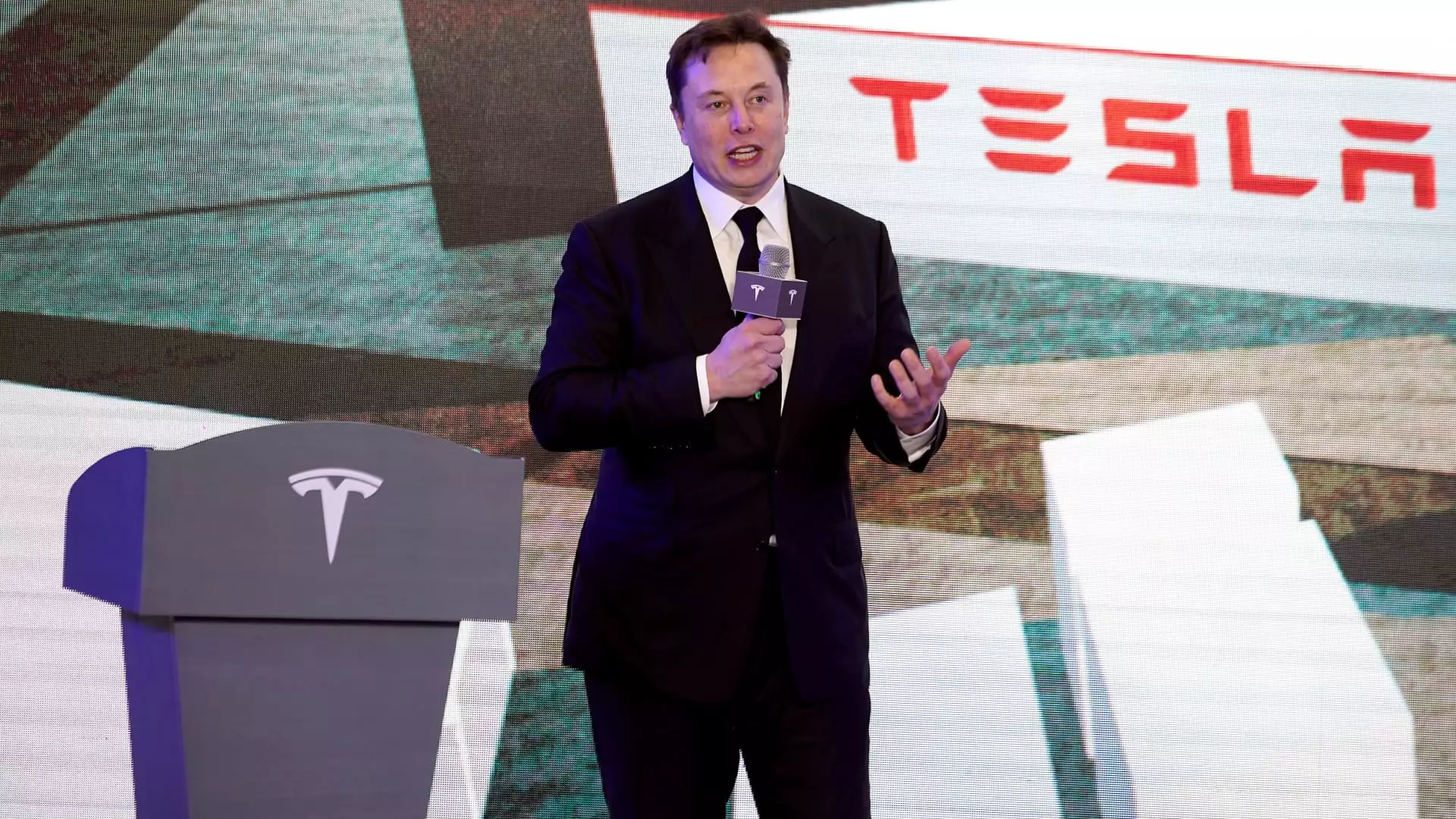Tesla’s recent corporate bylaw changes, endorsed by Elon Musk himself, pose a troubling shift in the relationship between the automaker and its shareholders. Allowing the company to impose a daunting 3% ownership requirement before a shareholder can initiate any legal proceedings significantly narrows opportunities for legal recourse against management misconduct. With Tesla’s soaring market capitalization exceeding $1 trillion, a stake of this size translates to over $30 billion. This effectively creates a barrier to entry that only a select few can overcome. Shareholders who once held the might of collective power may now find themselves powerless, with their rights to challenge board decisions and executive actions subverted under the guise of corporate governance reform.
Leverage of Texas Laws: A Tactical Advantage
It’s revealing that Tesla chose to reconfigure its bylaws under Texas corporate law, taking full advantage of local statutes designed to protect corporations from shareholder lawsuits. Unlike Delaware, the traditional corporate haven where shareholder interests are typically safeguarded, Texas seems to welcome maneuvers that restrict shareholder influence. This tactical shift can be interpreted as a blatant chess move, securing Musk and his board from potential accountability. Critics could argue that listeners to the Tesla fanfare should take note of this newfound digression from robust shareholder protection. Instead of emphasizing transparency and fiduciary responsibility, Musk’s strategy invites scrutiny over his governance philosophy, suggesting that shareholder misgivings are now oft-categorized as inconveniences.
The Aftermath of the Tornetta Decision
Musk’s recent maneuvers echo the notorious Tornetta decision, where a small shareholder successfully challenged Musk’s excessive 2018 compensation package. The precedent set by this lawsuit was not only significant in that it showcased the accountability of corporate executives; it symbolized the power ordinary shareholders can wield. Musk’s resolute statement, “Never incorporate your company in the state of Delaware,” reflects his commitment to evade similar pitfalls in governance accountability. The shift to Texas seems calculated, as it presents the added benefit of insulating Musk from future lawsuits and further scrutiny. Is this a move to preserve the façade of innovation while creating a fortress against potential dissent? Such strategies lead one to ponder the sustainability of the company’s values amidst rapid expansion and heightened scrutiny.
The Bigger Picture: Corporate Governance in Crisis?
What does this mean for corporate governance standards at large? Tesla’s case could serve as a harbinger of a trend where prominent companies prioritize fortification against shareholder lawsuits over ethical transparency. In an era increasingly defined by corporate accountability, the shift points to a disturbing trend of corporations aiming to rewrite the rules for their benefit, essentially skipping over the accountability dance touted by ethical capitalism.
Furthermore, the underlying sentiments of distrust among investors threaten the very foundations of the market’s integrity. Wealthy investors could potentially wield undeniable power, while smaller shareholders may feel increasingly alienated and unsupported. The ethical ramifications of this paradigm shift are undeniable and alarming; are we witnessing the dawn of a new age where corporations, bolstered by capital and law, detach themselves from the responsibility towards their shareholders?
The Broader Implications for Capitalism
As center-right proponents of capitalism often espouse the need for fair competition, what does the future hold when corporations optimize loopholes to silence dissent? A direction like this undercuts the very ethos of capitalism, where shareholder rights should ideally act as checks on executive power. Instead, this move prioritizes corporate interests over investor engagement—resulting in a scenario few envisioned. In an environment where ballads of innovation echo through Tesla’s corridors, a harmonized investor relationship seems undermined by strategic maneuvering crafted to stifle dissent and accountability.
The implications of Tesla’s new bylaw resonate far beyond their corporate walls and determine the clarity of investor rights in these innovative landscapes. As the lines blur between corporate interests and shareholder engagement, we may indeed be entering a brave new world of corporate governance—one that may lack the fundamental elements that made our economic model flourish.

